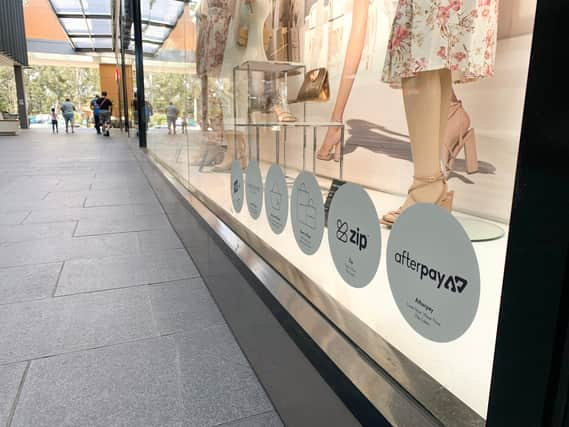Under 30s are most susceptible to dangerous ‘buy now, pay later’ schemes - what you need to know


Firms that offer ‘buy now, pay later’ finance options should be fully regulated to help better protect shoppers, consumer watchdog Which? has warned.
Nearly a quarter of shoppers who went through buy now, pay later services say they spent more than they planned, thanks to the easy to access credit products encouraging impulse buying.
One in 10 buy now, pay later customers incurred late charges
Advertisement
Hide AdAdvertisement
Hide AdWhich? revealed that around one in 10 buy now pay later users incurred late charges while using the services.
Buy now, pay later (BNPL) services have seen a dramatic rise in the UK over the last five years.
Consumer expert Martin Lewis warned MPs in a House of Commons select committee hearing on 9 December of an “explosion” of the services, which were targeting under 30s and getting them into debt.
Klarna is the leading BNPL firm in the country, and others include ClearPay and LayBuy. All services allow users to make purchases through affiliated websites and pay later, with the selling point being the charge no fees or interest.
Advertisement
Hide AdAdvertisement
Hide AdMr Lewis urged, “It is absolutely the fastest-growing form of credit and it is targeted at the under-30s. And if you forgive me, most policymakers are not under 30 and it has gone under the radar.”
Accidental BNPL purchases
A survey, conducted by Which? In October 2020, found that 26 per cent of BNPL users hadn’t intended on using BNPL until it appeared at the checkout.
Meanwhile, the survey also revealed that 13 per cent of BNPL users said they had accidentally used the service because it was selected as the default payment option at the checkout of the website.
Which? has warned that because BNPL is a form of credit that can push people into debt, its worrying that many users are using the services so impulsively and unintentionally.
Pushy advertisements to lure in users
Advertisement
Hide AdAdvertisement
Hide AdResearch by Which? also showed that BNPL advertising was featured heavily on retailers websites.
Looking at 80 BNPL partner retailers, the watchdog discovered that BNPL adverts were taking up as much as 80 per cent of the screen, with fashion websites the most likely candidates for the promoted adverts.
In 2017, Klarna commissioned a study with the University of Reading into online shopping behaviour. The report, intended for partner retailers, explains how to persuade shoppers to make “emotional” purchases instead of “logical” ones.
“The less the customer is required to think about inputting data, the more likely they are to make a purchase without too much consideration,” the researchers concluded.